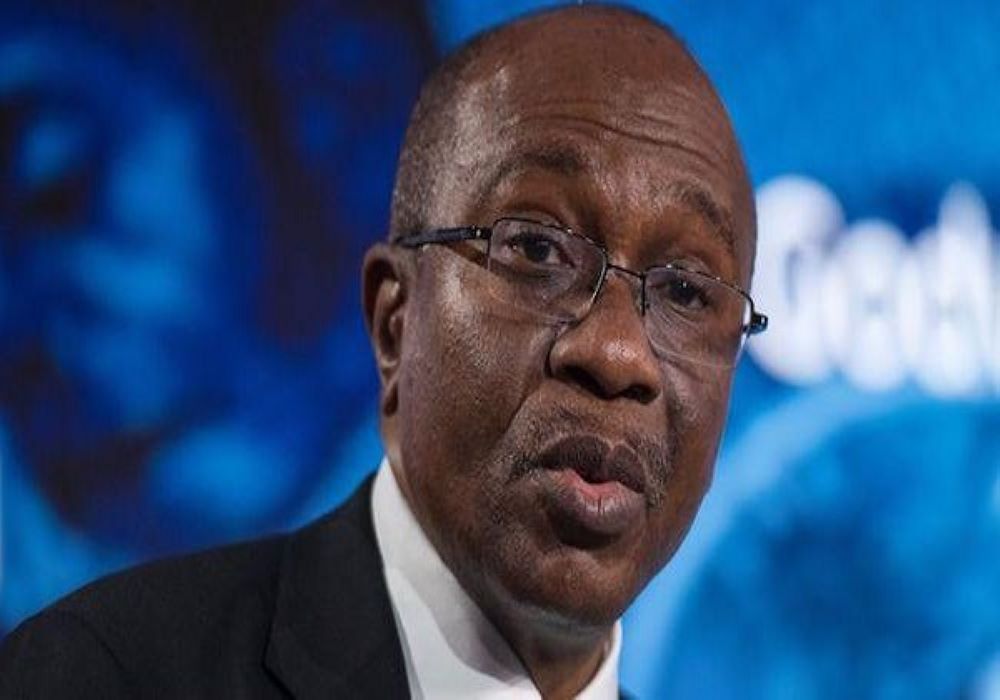Business
Nigerians Lambast Emefiele on Shift of Old Naira Notes Deadline

There has been much controversy surrounding the redesigning of certain denominations of the naira, Nigeria’s national legal tender.
The Central Bank of Nigeria (CBN) had unveiled a policy for the redesign of the N200, N500 and N1000 currency notes in Q4, 2022 and set a January 31, 2023 deadline for the old currencies to be cut-off the legal tender list in Nigeria.
The policy had attracted the attention of various segments of the society, with attendant media blitz and theatricals, with notable political actors – serving and aspiring inclusive, taking turns to have their say.
While that raged, the CBN, through its governor, Godwin Emefiele, maintained that it’s actions were thoroughly thought out, and backed by the highest authority in the land, so the January 31 date would not be shifted.
The apex went ahead to engage the public through Short Message Services (SMS) and market-storms across the federation to warn the public sternly that it was dead serious.
Well-meaning Nigerians took sides with apex bank, because it canvassed that it was targeted at curbing ‘oppression’, instilling sanity and sanitizing cash within the Nigerian economy.
While elected state governors sought the attention of and met with the apex bank on this to no avail, the National Assembly weighed-in with resolutions, after summons to Emefiele went unheeded.
The Senate in resolution, passed in panic resolved that the deadline for the old notes to stop being legal tender be shifted to June 31, 2023. (The month of June has only 30 days!).
The Senate in a video that has gone viral on social media was seen debating the need for a shift of the January 31 date to the middle of the year on the grounds that rural Nigeria lacked necessary infrastructure to meet the set deadline.
Senate President Ahmed Lawan ruled in favour of the “ayes” at the end of the debate and voting to uphold the Upper Chamber’s position that the January 31 date be shifted.
The House of Representatives on its part, summoned Emefiele, who shunned the summon, for what many thought was a desire to keep to the set dates, with Speaker, House of Representatives, Femi Gbajamiala threating to issue a warrant of arrest against Emefiele.
In an interesting scenario, Emefiele, took refuge under President Muhammadu Buhari, running to the Presidential Villa on regular basis to seek validation or endorsement for the policy, as the drama was unfolding.
So well did Emefiele act his script that the public was taken-in that he was acting President Buhari’s script. This make-believe played out, even on Sunday, when the governor announced that President Buhari had approved, a 10-day extension and a 7-day grace period, which terminate on February 10, and February 17 respectively.
The first cut-off date, of February 10 applies to the commercial banks and other agents mandated by the CBN to facilitate the collection of the old notes in exchange for the new currency notes. However, the grace period is in compliance with legal provision for the apex bank to mop-up what would have been left after the others would have delivered on the policy as spelt out.
It appears that members of the public could not hide their disappointment at the apex bank for succumbing to cheap blackmail from the political class, despite the banks, having been perceived to have sold out by ‘trading-off’ the new notes, which occasioned its scarcity in the economy.
In a series of tweets and Facebook posts, Nigerian’s expressed dismay that the date had to be shifted after a lot had been invested into the making the policy work.
Kayode Ogunwale, would not buy into the shift in day, because to him, it would not solve any problem.
He wrote, “what we need is availability of new naira notes. Extension cannot solve the problem.”
In what points to connivance by commercial banks against the apex bank and the populace, by ‘trading off’ printed new currency notes to people of means and political actors, Media Personality, Uzo Maxim Nwatu, decried that the new notes were being re-routed.
He stated, “The new Naira of the CBN is missing road and entering ‘fiam’ into Big Men’s homes.”
On his part, Jide Ojo, decried the torture of the old notes being rejected by even reputable businesses well before the cut-off date, because they believed Emefiele and his CBN were a serious bunch.
Ojo lamented, “Walahi! It’s no longer funny! This morning I took my old Naira notes received from POS yesterday to make a purchase at a big supermarket in my area, only to be told that they no longer take the old Naira notes.”
With the postponement, said to be with President Buhari’s approval, people like Ojo can heave a sigh of relief, hoping that the 10-day extension would be enough for those in charge to discharge on the policy professionally.
Business
Savannah Energy Provides Unaudited FY 2024 Trading Updates

Savannah Energy has shared a trading update on its Nigerian operations and other markets in Africa, including up-to-date cash collections in its Nigerian business.
According to the update, made available on Thursday in Lagos, its gross production in Nigeria averaged 23.1 Kboepd for FY 2024, broadly in line with the prior year’s 23.6 Kboepd, of which 88% was gas (FY 2023: 91%).
On the update, CEO of Savannah Energy, Andrew Knott, said, “I am pleased to provide a FY trading update which demonstrates the continued progress we have made in 2024, a year which saw the highest level of cash collections ever recorded by our Nigerian business. 2025 is expected to be an exciting year for our Company: we have a large planned operational programme in Nigeria which is anticipated to enhance both our oil and gas production levels and capacity; we intend to progress our R3 East oil development project in Niger; we continue to pursue key acquisitions in the upstream oil and gas space; and we continue to seek to build our power business.
“Fundamentally, Savannah remains unequivocally an “AND” company, seeking to deliver strong performance both for the short AND long term across multiple fronts, and pursuing growth opportunities in both the hydrocarbon AND power sectors.”
The update It also shows that it generated a Total Income of US$393.6 million in 2024, compared to FY 2023’s US$289.8 million. This consists of Total Revenues of US$258.7 million and Other operating income of US$134.9 million.
The report also shows that Savannah’s FY 2024 Total Revenues were ahead of the previously issued financial guidance of greater than US$245 million, while FY 2024 financial guidance is reiterated for Operating expenses plus administrative expenses at ‘up to US$75 million’. The company expects its FY 2024 capital expenditure to come in lower than planned (previously guided at ‘up to US$50 million’) due to the phasing of spend.
ALSO READ: CSR: Dangote Awards Scholarships To 473 Students
According to the update, Savannah’s cash collections in 2024 amounted to US$248.5 million, a slight increase from the US$206 million it received in 2023. The report further shows that its cash balances as at 31 December 2024 stood at US$32.6 million, compared to the 31 December 2023 figure of US$107.0 million.
The report shows that the company’s midstream subsidiary, Accugas Limited, had as at 31 December 2024 drawn down on its NGN332 billion of the NGN Transitional Facility, with the resulting funds being converted to US$, which, along with cash held, was used to partially prepay the existing Accugas US$ Facility, leaving a balance as at 31 December 2024 of approximately US$212.3 million.
The report also provided new updates on Accugas’ US$45 million Uquo Central Processing Facility (“Uquo CPF”) compression project in Nigeria, noting that its commissioning which will enable the expansion of gas production in the medium term is well underway.
The report highlighted the progress being made in the procurement process of long lead equipment in Nigeria for a potential two-well drilling campaign on the Uquo Field in H2 2025, with an additional gas development well expected to add up to 80 MMscfpd of supplemental production capacity and a potential exploration well targeting an Unrisked Gross gas initially in place (“GIIP”) of 154 Bscf (25.7 MMboe) of incremental gas resources.
The update shows that progress is also being made in the planned Savannah acquisition of Sinopec International Petroleum Exploration and Production Company Nigeria Limited, whose principal asset is a 49% non-operated interest in the Stubb Creek oil and gas field (“Stubb Creek”), with regulatory approval and completion being targeted in Q1 2025. Following the completion of the acquisition, Savannah intends to commence an expansion programme which is anticipated to increase Stubb Creek gross production from an average of 2.7 Kbopd in 2024 to approximately 4.7 Kbopd.
In Niger, Savannah continues to seek to progress its 35 MMstb (Gross 2C Resources) R3 East oil development in South-East Niger, while it continues to push for a potential alternative transaction structure to acquire a material stake in producing oil and gas assets in South Sudan as previously announced on 20 December 2024.
On the renewable energy front, the update shows that Savannah has up to 696 MW of renewable energy projects currently in motion, including the up to 250 MW Parc Eolien de la Tarka wind farm project in Niger and the up to 95 MW Bini a Warak hybrid hydroelectric and solar project in Cameroon. A firm believer in Africa’s transition to renewable energy, Savannah continues to target a portfolio of up to 2 GW+ of power projects in motion by the end of 2026.
Business
Nigeria Can Achieve 5.5% GDP Growth – NESG
The Nigerian Economic Summit Group (NESG) has projected that the country has the potential to achieve a 5.5% growth in Gross Domestic Product (GDP) if critical policy reforms are sustained.
This was disclosed on Thursday during the launch of the NESG’s 2025 Macroeconomic Outlook report.
Speaking at the event, the Chief Economist and Director of Research & Development at NESG, Dr. Olusegun Omisakin, highlighted the need for more efficient policy implementation to unlock Nigeria’s economic potential.
READ MORE: Davido Is Richer Than His Billionaire Father – Ibrahim Chatta Claims
“We believe at the optimal level, if we embark on more efficient policy reforms, the Nigerian economy has the potential, the GDP to end up at 5.5 per cent, and we believe that this is achievable,” Omisakin stated.
More to follow……….
Business
CBN Approves Release Of Nigerian FX Code
The Central Bank of Nigeria (CBN) has announced the release of the Nigerian Foreign Exchange (FX) Code, a set of guidelines designed to promote ethical conduct among authorized dealers in the country’s FX market.
In a statement, the apex bank disclosed that the official launch of the Code would take place on Tuesday, January 28, 2025, at the CBN Head Office Auditorium in Abuja.
READ MORE: Dangote Denies Culpability In Pumping Up Petrol Price
“The Central Bank of Nigeria has approved the release of the Nigerian Foreign Exchange (FX) Code as a guideline to the banking industry to promote the ethical conduct of authorised dealers in the Nigerian Foreign Exchange Market,” the statement read.
The introduction of the FX Code is expected to enhance transparency, accountability, and professionalism within Nigeria’s foreign exchange ecosystem, aligning it with global best practices.
The event is anticipated to attract key stakeholders in the financial and banking sectors, as well as representatives from authorized FX-dealing institutions across the country.




















